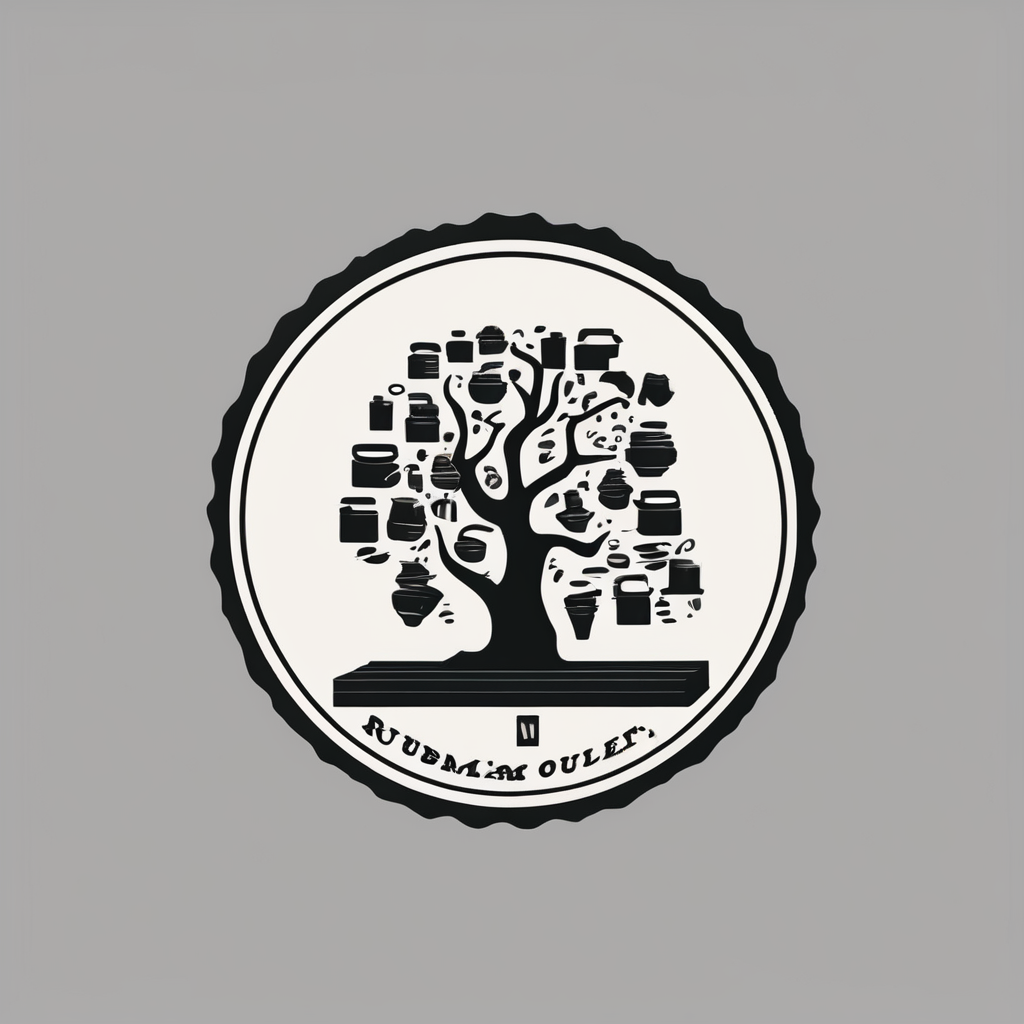Importance of Native Bees in the UK
Native bees are crucial pollinators, playing an essential role in the UK’s biodiversity. They facilitate the reproduction of many plants by transferring pollen, which contributes to healthy ecosystems and vibrant natural landscapes. By supporting these creatures, we ensure the continuation of these vital ecological processes.
However, the decline in bee populations poses a significant threat. Factors such as habitat loss, pesticide use, and climate change have contributed to decreases in their numbers. This decline impacts not only plant pollination but also the biodiversity of species that rely on these plants for survival.
Also read : Creating a Coastal Edible Garden: A Guide to Designing Your Front Yard in a UK Coastal Town
The benefits of supporting native bees extend far beyond mere ecological balance. By encouraging native bee populations, we enhance pollination services vital for agriculture, leading to improved crop yields. Moreover, fostering environments conducive to their survival helps in maintaining a diversity of plant and animal life, contributing to robust ecosystems.
Supporting native bees can be achieved through responsible garden design, sustainable gardening practices, and advocacy for reduced pesticide use. Simple actions such as planting native flowering plants or creating bee habitats can have significant positive impacts, ensuring the long-term preservation of these crucial pollinators.
Have you seen this : Transform Your Outdoor Space: A Guide to Designing a Vibrant Autumn Garden with Native UK Plants
Key Design Principles for Bee-Friendly Gardens
Designing a bee-friendly garden requires thoughtful consideration of various elements that contribute to a supportive environment. By creating diverse plantings for varied nectar sources, gardeners can provide a consistent food supply for native bees throughout the season. This approach encourages regular bee visits and enhances pollination efficiency.
Understanding sun and shade patterns is crucial for optimal plant placement. Certain flowering plants thrive in specific light conditions; thus, knowing your garden’s orientation can help in selecting the right species. This ensures robust growth and maximizes the nectar and pollen production vital for bee sustenance.
Incorporating water features is another significant aspect of sustainable gardening. Bees require a clean water source for hydration and to maintain hive temperature. Small, shallow water features with landing pads not only support bee wellbeing but also add aesthetic value to the garden.
By blending these elements—diverse plantings, strategic positioning, and thoughtful inclusion of water sources—gardeners can create inviting bee habitats. This enriches the local ecosystem, enhances biodiversity, and underscores the gardener’s role in encouraging the flourishing of native bee populations. With these principles, a garden becomes more than just a landscape; it transforms into a thriving bee sanctuary.
Selecting the Right Plants for Native Bees
Choosing the right plants for bees is pivotal in crafting a bee-friendly garden. Native flowering plants are particularly beneficial, offering local bees the nutrients they are best adapted to forage. Opting for species that bloom at different times ensures a continuous food supply throughout the seasons, greatly supporting bee vitality.
Recommended Flowering Plants
When selecting flowering plants, consider native varieties like common wildflowers, which are effective in attracting native bees. Early-season bloomers such as bluebells and daisies provide vital nectar after winter, while late bloomers like asters and goldenrod sustain bees as autumn approaches. A seasonal planting guide facilitates regular bee visits, enhancing pollination opportunities in your garden.
Herbs and Edibles
Integrate herbs that serve dual purposes, such as lavender and thyme. These herbs not only flavour your meals but also act as bee attractants due to their aromatic flowers. Edibles like fruiting bushes or courgettes contribute to bee support while adding to your garden’s productivity.
Shrubs and Trees
Incorporating shrubs and trees plays a critical role, offering habitat and protection. Fruit trees and flowering shrubs, like hawthorn and willow, provide resources and shelter. Integrating these elements ensures a robust ecosystem, offering long-term benefits for bee habitats.
Providing Shelter and Nesting Sites
Creating a welcoming environment for native bees goes beyond selecting the right plants; providing adequate bee habitats and nesting sites is equally crucial. Solitary bees, which are abundant in the UK, primarily seek small nooks and cavities to lay their eggs. You can easily support them by crafting simple structures from natural materials like reeds, bamboo, or wood blocks with drilled holes, popularly known as bee hotels.
Bee hotels mimic the natural habitats these bees need, providing simple and effective solutions for encouraging bee populations to thrive. Placing these structures in sunny, sheltered spots will attract solitary bees looking for nesting sites. However, while these bee hotels are beneficial, it’s also important to leave some areas of your garden undisturbed. Old logs, piles of sticks, or leaves offer fantastic natural nesting opportunities and cater to various bee preferences.
Think of your garden as a sanctuary by leaving patches undisturbed to mimic natural settings. This also encourages biodiversity as other beneficial insects and organisms use these spaces, enhancing the garden’s overall health. By providing diverse nesting options, you are creating a supportive environment that ensures the thriving of essential pollinators.
Maintenance Tips for Bee-Friendly Gardens
Garden maintenance is pivotal in ensuring that your bee-friendly garden thrives while supporting pollinator health. Implementing sustainable practices is not only beneficial for bees but also maintains ecological balance and minimises environmental impact. One of the first steps is avoiding the use of pesticides and harmful chemicals. These substances can be detrimental to bees, affecting their health and hindering their role as pollinators.
Instead, opt for organic alternatives or manual pest removal methods—these promote a safer environment for bees to flourish. Regularly monitor plant health and use natural deterrents to maintain balance in your garden ecosystem. Periodic cleaning of bee habitats, such as bee hotels, is also essential to prevent disease and ensure a welcoming environment.
Implement seasonal maintenance tips to keep your garden in prime condition year-round. During spring, focus on planting and nurturing new growth with adequate water. In summer, ensure flowers are well-watered during dry spells to maximise nectar production. Autumn is a time for bolstering soil health with natural compost, preparing your garden for winter by leaving undisturbed areas where bees and other creatures can find refuge. By diligently following these practices, you contribute significantly to bee care and the broader ecological community.
Additional Ecological Benefits of Supporting Bees
Supporting native bees holds significant ecological benefits, contributing robustly to the UK’s environmental health. One pivotal advantage is their crucial role in food production through effective pollination. Bees are essential pollinators for various crops, influencing both quantity and quality of yields. This, consequently, secures food supplies and stabilises the agricultural sectors economically.
Biodiversity support extends beyond agriculture. By fostering bee populations, we promote the growth of diverse plant species which, in turn, sustain a variety of wildlife. A garden teeming with diverse plants becomes a mini-ecosystem, supporting numerous species from insects to birds, thereby enhancing biodiversity at large. Encouraging native bee species helps maintain genetic plant diversity, critical for resilient ecosystems.
Further, preserving and fostering bees fortifies climate resilience. Healthy ecosystems can better withstand and adapt to changing climates, thanks to improved plant health and diversity. Current environmental challenges make this ecological balance ever more critical. These actions reduce overall negative environmental impacts, creating environments better equipped to combat extreme weather conditions and resource scarcity.
To maximise these benefits, intentional support of bee populations through garden practices is essential. As bees thrive, so too does the interconnected web of life, underscoring their indispensable role in ecosystem stability.


